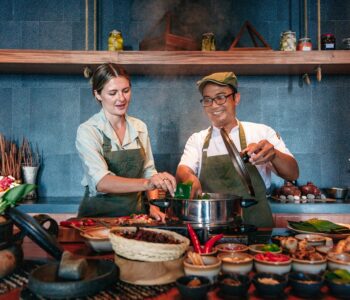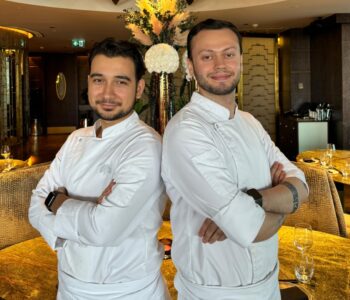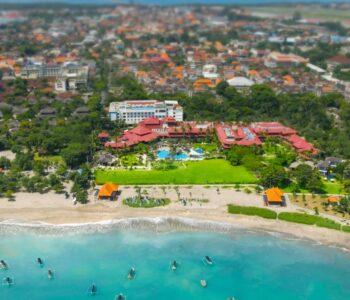What Covid-19 has taught us, amongst a multitude of other lessons, is how incredibly dependent we all are on the economic system. When the wheel stops, we begin to realise that our most basic needs may become more difficult to attain — food, water, electricity, it’s all gone if we aren’t all getting paid. So, in light of future ‘catastrophes’, are we better to distance ourselves from the system, and go ‘off grid’?
In response to modern challenges — even before Covid-19 — a returning lifestyle trend has been to return to a simpler, self-reliant way of life. The allure of learning from our pre-industrial past has caught more interest as a strategy to survive uncertain times.
In sociological theory, a relationship between crowding and agriculture is shown, and how one encourages the other. The Neolithic revolution, also known as the First Agricultural Revolution, the shift from hunter-gatherer to agriculture and settlement made increasingly larger populations possible. The early beginnings of civilisation, the fruits of which we see around us today. Arguably, however, it is this very way of life that has made the global population so susceptible to the spread of epidemic diseases.
If indeed our lives before settling for mass-sedentism was safer, i.e. instead we were scattered populations living a nomadic life, is it worth reviving elements of our deep past? Well, the growing number of people now learning ‘primitive’ skills (such as permaculture) as well the paranoid ‘doomsday preppers’, would certainly say yes. Those already finding the need for digital sabbaticals, or a social media detox, are half way there. A craving to detach from this modern hysteria we all now live in.
Well, if we take a look at Maslow’s Hierarchy of Needs, in times of struggle, addressing our first base ‘Physiological Needs’ (food, water, warmth, rest) may require an alternative to dependent consumerism and a path towards a life of self-sufficiency.
Lessons from the past
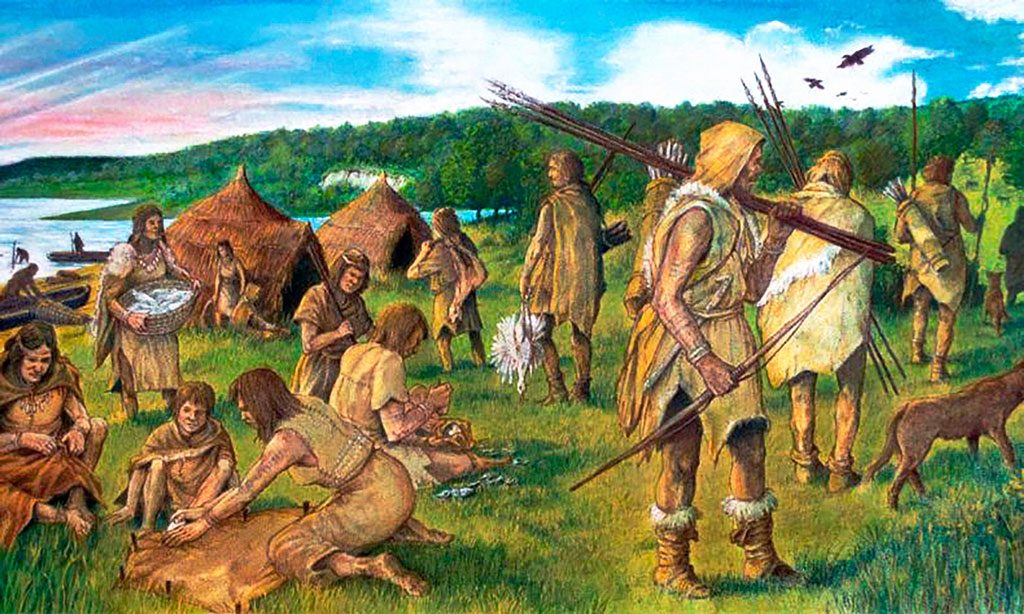
Homo sapiens have lived and evolved for around 200,000 years but it was the adoption of agriculture during the Neolithic revolution that catapulted the human race towards a better, safer life; and interestingly reformed the survival game. For centuries, this was the understanding, before scholars began amassing new evidence suggesting otherwise. In a 1999 essay, Pulitzer Prize-winning geographer Jared Diamond labelled the advent of agriculture as‘our greatest blunder’. He, and many other academics gathered that those who lived through the Stone Age were in fact not worse off than us today. The transition from hunting-gathering to farming and large-scale cultivation was essential to increase the ability to feed more plates. In turn, not only did it shift the priority from quality to quantity, the dependence on numbers of crops put farmers at risk of starvation, say, if one crop were to fail.
Today, that has further developed into a cavernous gap between the average consumer and our source of food. With the absence of food storage, pre-Neolithic era humans lived off wild plants and animals. The confidence lay in natural environments to be eternally provident, answering to the human’s immediate needs.
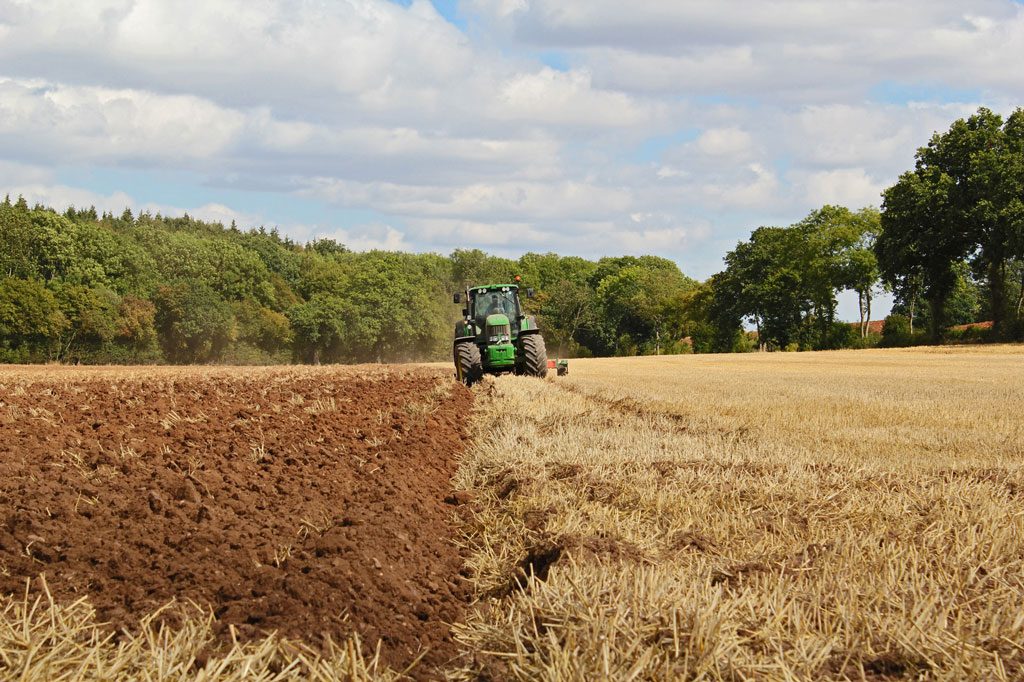
In comparison, the rise of large-scale cultivation has meant that we now take full responsibility for yielding abundance and controlling surpluses, inevitably paving the way for power, over-exploitation and importantly, over-dependency. It cemented a work culture that is future-oriented but now tangled with societal goals and economic aspirations.
So, now, to attain our sustenance, we must become skilled at an entirely abstract task, gain employment, gain finances, before being able to afford food that was once simply gathered, self-grown or hunted.
Towards self-sufficiency
When Jokowi and Jusuf Kala were elected in 2014, food sovereignty was a promise encapsulated in their nine-point Nawacita pledge. They introduced a roadmap through the National Economics and Industry Committee (KEIN) elaborating on the plan to achieve self-sufficiency by 2045, thus minimising dependence on imports. As a vast archipelago abundant in fertile lands and blessed with equatorial climate all-round, Indonesia should be leader in the global agriculture, or ‘the world’s food barn’ as hoped by Jokowi.
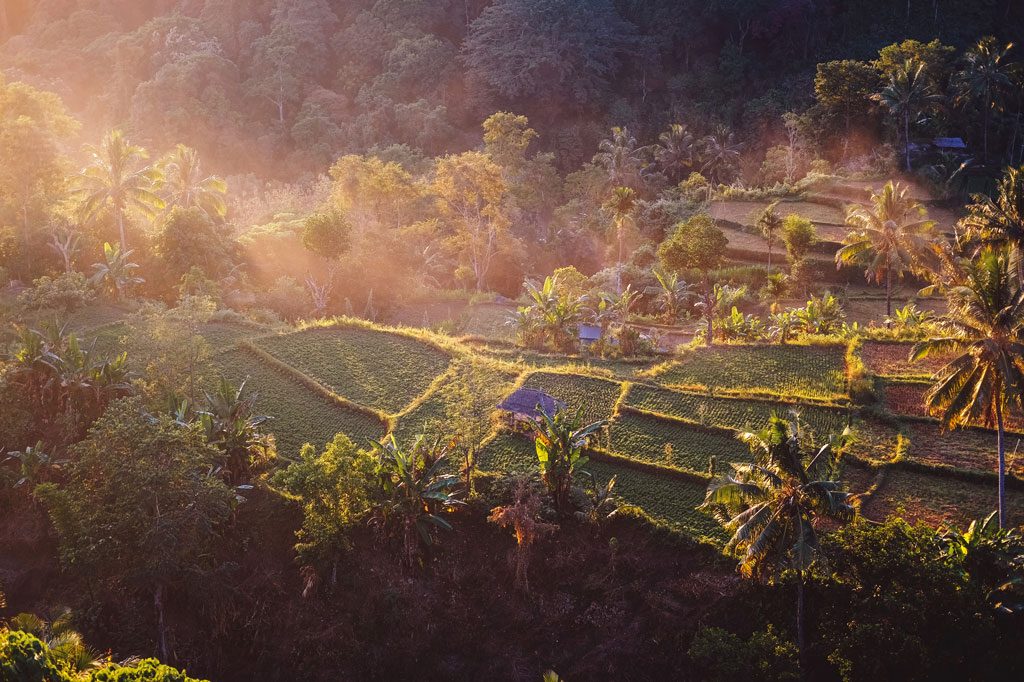
Whilst the President’s efforts appear to be scarcely attainable, the vision is by all means positive. Perhaps the scale was too large, what if instead that same vision was implemented at an individual level?
Author Simon Dawson sold his trendy London flat and retreated to a rural cottage in Exmoor where he, his wife, and their Great Dane went back to basics and nowlive a happy, self-sufficient life. Aided by technology,he recounts the resurgence of living autonomously easier to do. You can download apps to assist your farming agenda from planning a bountiful veg garden to making your own wine and cheese.
Of course, technology-supported or not, not everyone has the freedom to drop life as we know it and run away to faraway log-cabin. So what are some feasible steps that we can take to adopt at least some level of self-sufficiency, thus reducing our dependency on systems out of our control?
Well, we could start by acknowledging the nature we have inherited. Collecting rainwater for house use, for example, raises awareness that water can be a free and available resource. This reminds me of a joke on how washing lines are solar-powered drying machines, showcasing how the new perspective sees technology as the norm and nature as the strange or external.
We can then learn to grow, plant and forage – even at a small scale. This is why there has been a resurgence of interest in permaculture; people have become aware of their complete ignorance when it comes to basic survival. Self-reliance should equate to the ability of staying resourceful. Even in traditional Balinese life, shares Chakra Widia, there is a strong principal of producing, rather than buying, daily necessities. For Chakra, Director of Permaculture at Sawah Bali and Founder of Tri Hita Karana Bali, childhood was a blessing, having grown up when slow and simple living was the norm in Bali. The farms were organic, and much like for our ancestors, the quality of crops was preferred over yielding in great quantities.
To fulfil kitchen needs, he explains, every family home
makes their own coconut oil that they independently process every few days. “We
call it nan usan,” he says. They would make sure each component of the
coconut or anything they foraged from nature were put to good use, leaving no
waste. Then came the coconut cream made from the oils. Paired with fresh herbs
and spices, topped on a bed of rice from the paddy field, you have fixed
yourself a wholesome meal.
He found the same principles he grew up with in permaculture, which, he explains, isn’t limited to farming. It is instead a culture that embraces a life centred around holistic systems working with rather than against nature. The term itself was coined in the mid-1970s; but in a more current definition, it describes a set of design principles that mimics the patterns and relationships found in nature, with a prime objective of yielding productions of food and other resources for local, sustainable consumption.
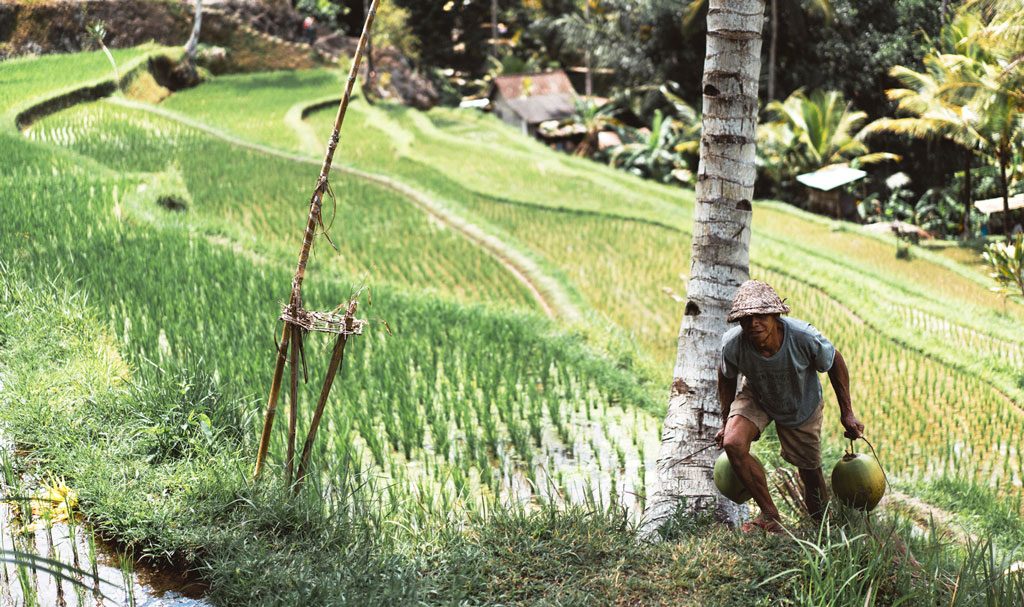
Permaculture shifts away from ignorant consumption and transitions us into responsible production whilst building on a culture of self-reliance and community values. Doesn’t this sounds like something we need when crises hit?
As the father of permaculture, David Holmgren, laid this out perfectly in some proverbs: ‘the bigger they are, the harder they fall’ reminds us the disadvantages of size and excessive growth, whilst ‘slow and steady wins the race’ encourages patience and a culture of sustainability.
With the ethics and principles of permaculture, Charka’s tight-knit community propels the chain from gardens and food forests, to power and water catchment systems for homes. As both an antidote to the environment and the ‘conscious’ community’s outcry, he offers a toolkit in the form of projects and workshops for those seeking an eco, self-sustaining lifestyle.
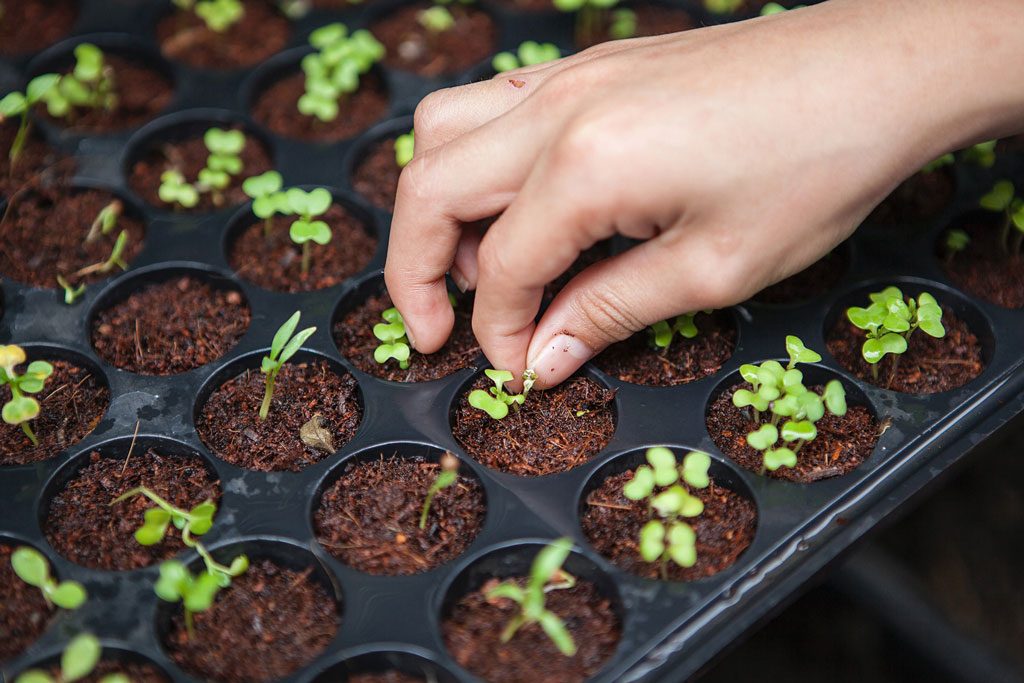
To date, the organic farm Chakra manages produces “maybe as high as 400 times” more than the average rice farm. “Why should we take rice from other people?” Referring to the irony of Bali’s heavy reliance on importing rice. Could we mirror his argument at an individual level? “Why buy tomatoes or lettuce or chillis or spring onions from other people when I can grow my own?”
The thinly-veiled cynicism quickly turned into fear when Chakra postulated the day the economy would collapse and money would lose its worth, people would retreat to the wild days of survival, and those with farms would be the ones with the upper hand.


